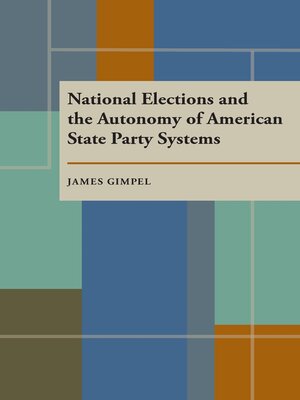
Sign up to save your library
With an OverDrive account, you can save your favorite libraries for at-a-glance information about availability. Find out more about OverDrive accounts.
Find this title in Libby, the library reading app by OverDrive.



Search for a digital library with this title
Title found at these libraries:
| Library Name | Distance |
|---|---|
| Loading... |
Traditional theories of party organization have emphasized two-party electoral competition as the force behind party unity in state politics. V. O. Key first advanced this theory in <i>Southern Politics,</i> where he concluded that party factionalism in the South was mainly attributable to the one-party character of the region. But this traditional theory does not fit all states equally well. In the states of the West, especially, parties are competitive, but political activity is centered on candidates, not parties. The theory of candidate-centered politics allows Gimpel to explain why party factionalism has persisted in many regions of the United States in spite of fierce two-party competition. Using interviews, polling data, elections returns, and demographic information, Gimpel contends that major upheavals in the two-party balance of presidential voting may leave lower offices untouched.







